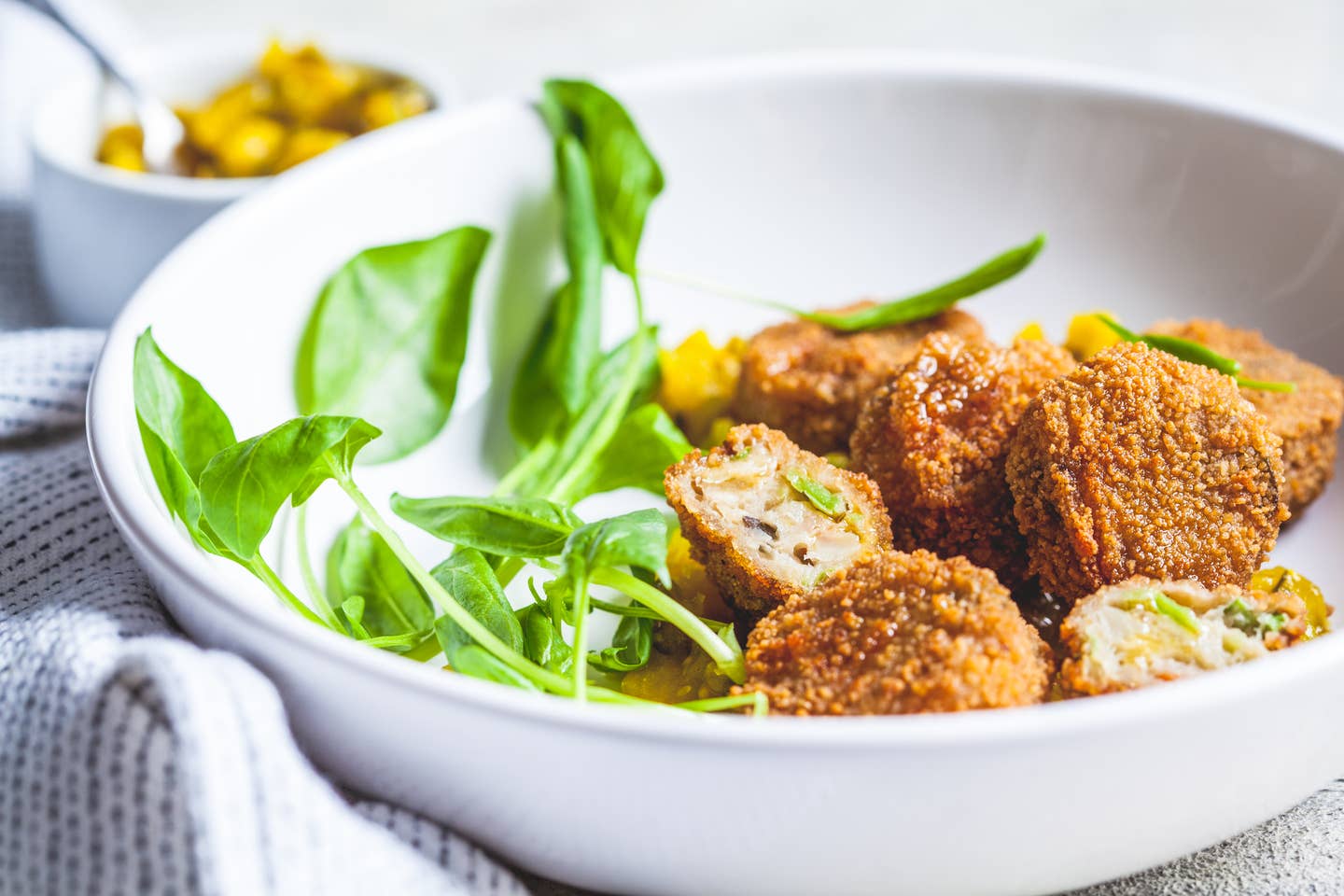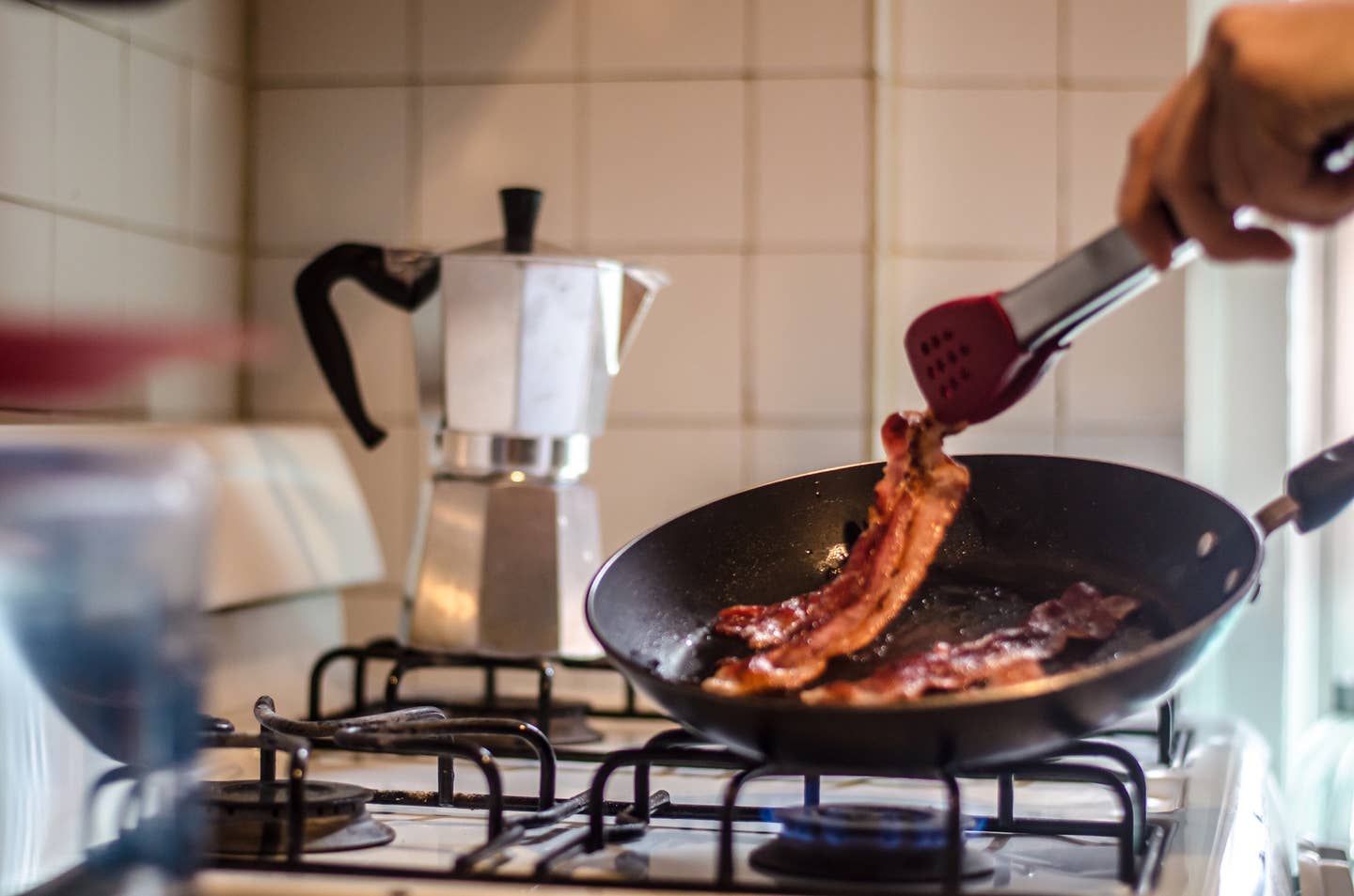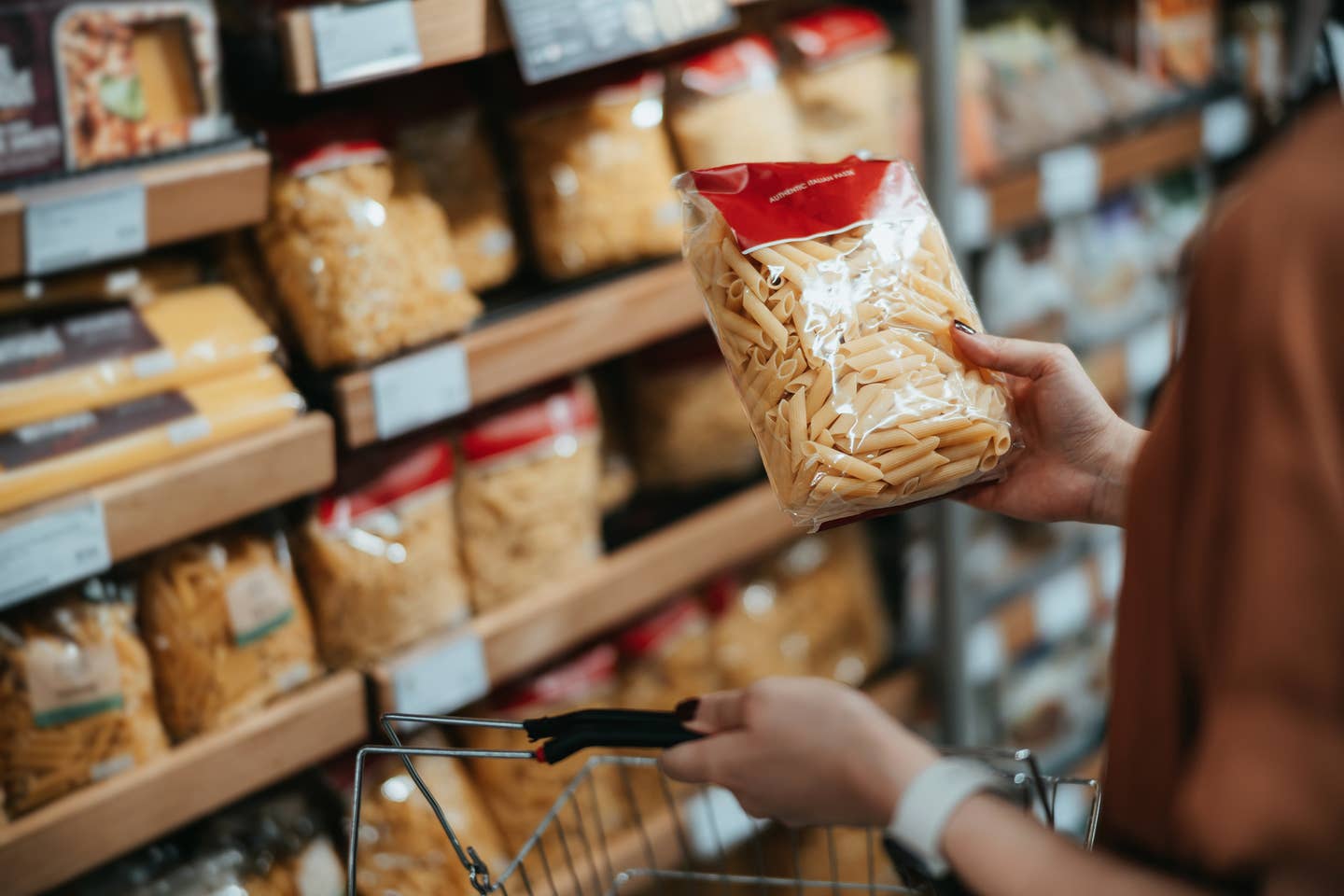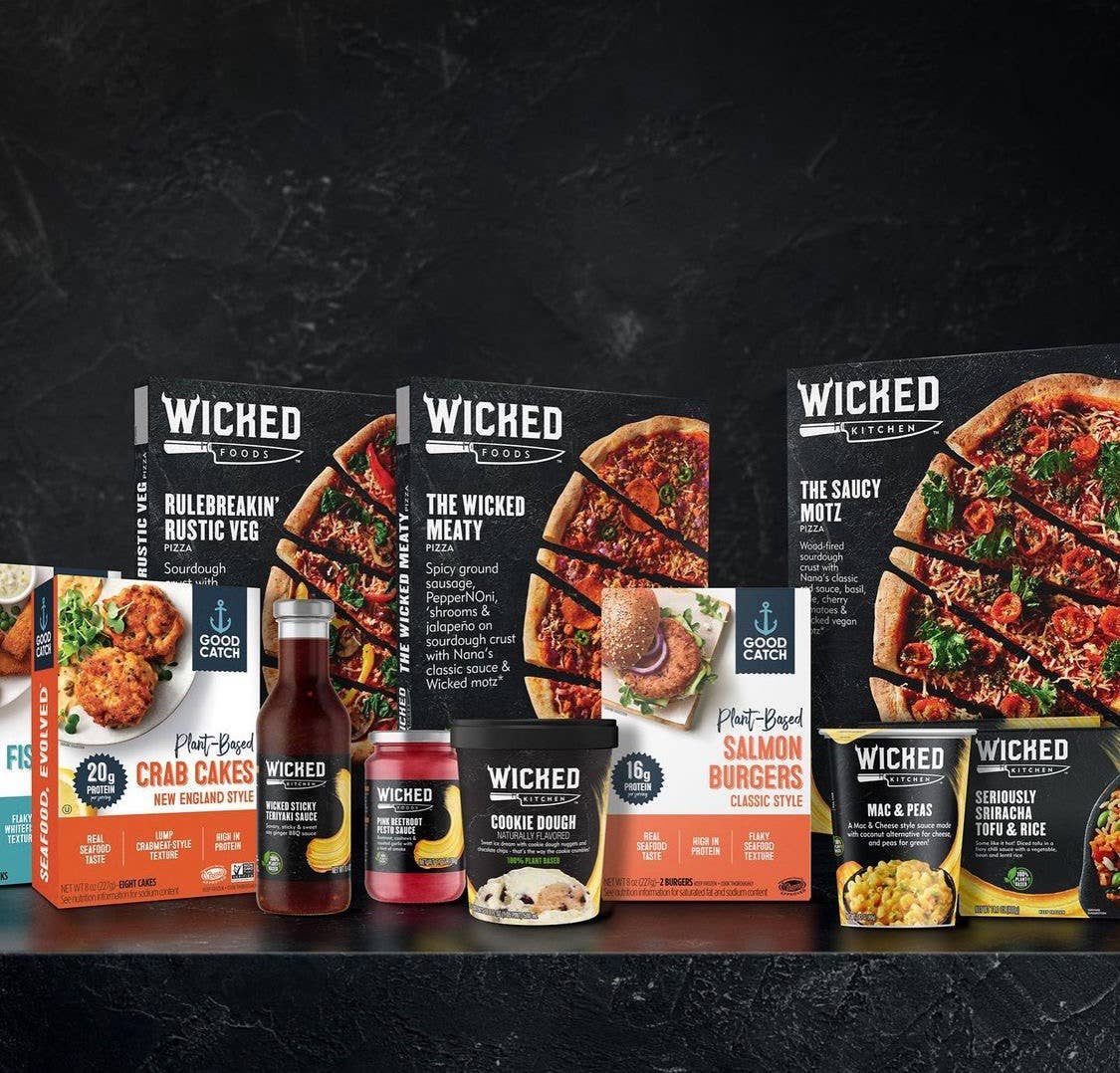
Amazon Shoppers Searched For ‘Vegan Meat’ 44,000 Times Last Month
Consumer interest in plant-based meat is rapidly growing, and online shoppers are turning their attention to vegan proteins across all categories. Amazon recorded that shoppers searched for plant-based meat an astounding 44,000 times during the month of June. The data comes from the metadata platform Label Insight, which conducted the research that found this spike in plant-based interest. The data showed that consumers have become interested in the accessibility of plant-based meats, coinciding with the rapid rise of plant-based sales worldwide.
The information showed that Amazon shoppers searched terms including ‘vegan burgers,’ vegan chicken,’ ‘vegan meat,’ and ‘vegan fish.’ The search terms display the growing interest in every plant-based sector and revealing how the vegan market is experiencing widespread growth. The published data also shows that the number of searches for bean burgers also jumped 45 percent.
Earlier this year, the Plant-Based Foods Association [PBFA] and The Good Food Institute [GFI] released a report that discovered that plant-based retail sales grew 27 percent in 2020. The changing consumer behavior has led the US plant-based market to new levels, exceeding $7 billion.
“The data tells us unequivocally that we are experiencing a fundamental shift, as an ever-growing number of consumers are choosing foods that taste good and boost their health by incorporating plant-based foods into their diet,” PBFA Senior Director of Retail Partnerships Julie Emmett said in a statement on the 2020 market performance. “As this industry surpasses the $7 billion threshold, PBFA is excited to continue our work to help build a sustainable infrastructure, including domestic ingredients sourcing, for this growing demand to expand access to plant-based foods.”
The report attributes a significant level of growth for the plant-based market to the increased focus on online sales. During the COVID-19 pandemic, consumers become increasingly interested in plant-based foods and nutrition. Online retailers like Amazon helped allow consumers to reach and find plant-based foods during the pandemic lockdown. With vegan food and proteins becoming more accessible nationwide, the surge can be traced back to the overall market shift as well as the general understanding relationship between diet and health.
The report from the GFI and PBFA explored what products consumers decided to buy during the COVID-19 pandemic and throughout 2020. In 2020, 18 percent of US households bought plant-based meat, surging 14 percent as compared to 2019. The report also found that beyond plant-based proteins, 39 percent of US households now have plant-based milk at home.
“2020 was a breakout year for plant-based foods across the store. The incredible growth we saw in plant-based foods overall, particularly plant-based meat, surpassed our expectations and is a clear sign of where consumer appetites are heading,” GFI Research Analyst Kyle Gaan observed. “Almost 40 perfect of households now have plant-based milk in their fridge, and at this rate, it won’t be long until we see just as many households purchasing plant-based meat.”
Another report from P&S Intelligence discovered that the plant-based meat market alone grew to over $1 billion in 2020. The report specifically tracks the amount of plant-based meat and protein consumers bought over the course of last year, revealing how popular meat alternatives have become since the onset of the pandemic.
"The COVID-19 pandemic has raised concerns over the consumption of meat products and hence, the adoption of plant-based proteins is expected to grow, thereby propelling the meat substitutes industry,” the report reads. “Furthermore, the pandemic has disrupted the supply chain of meat-based products, which has led to the reduced availability of fresh meat. This has shifted the attention of customers towards meat substitutes, which is why the sale of these products is surging.”
Plant-based interest is expected to continue growing for years to come at an accelerated rate. The Amazon report supports Credit Suisse’s report entitled “The Global Food System: Identifying Sustainable Solutions” released earlier this year. The report claims that the vegan food market will grow 100-fold by 2050, reaching $1.4 trillion. The growth is also attributed to the increasing presence of plant-based foods on online retailers, alongside increasing awareness regarding nutrition and sustainability.
“A change toward a plant-based diet appears inevitable, in our view, if the global food system is to become more sustainable,” Managing Director of Credit Suisse in the Securities Research Division Eugene Klerk states.
Top 15 Legumes and Beans
1. Soy Beans
Soybeans are a legume but they are such a great source of protein that we had to lead the veggie list with it. There is more protein in just one ounce of soybeans than a cup of sliced avocado! 1 cup equals Protein - 28.6g Calories - 298 Carbs - 17.1g Fiber - 10.3g Calcium - 175mg
2. Lentils
Lentils are the only beans that don't have to be soaked before preparing. Lentils can be the star of any dish that needs heft, from soups to burgers. Next time it's Taco Tuesday, try out lentil tacos—they pack a protein punch. 1 cup equals Protein - 17.9 g Calories - 230 Carbs - 39.9 g Fiber - 15.6 g Calcium - 37.6 mg
3. White Beans
Dried white beans can be stored for up to three years in a dry, room-temperature location. Which means you can keep them around whenever you need a staple for soups or stews. 1 cup equals Protein - 17.4 g Calories - 249 Carbs - 44.9 g Fiber -11.3 g Calcium - 161 mg
4. Edamame
Edamame is a great snack to keep in your freezer. Microwave them and spice them up with a sprinkle of salt, chili powder and red pepper flakes. You'll be enjoying a protein-filled snack that is better than chips. 1 cup (cooked and shelled) equals Protein - 16.9 g Calories - 189 Carbs - 15.8g Fiber - 8.1g Calcium - 97.6mg
5. Cranberry Beans
As you cook cranberry beans, the unique specks of red that give these legumes their name vanish. Boil the cranberry beans, blend into a spread and use as a delicious dip with veggies for a great protein snack. 1 cup equals Protein - 16.5 g Calories - 241 Carbs - 43.3 g Fiber - 15.2 g Calcium - 88.5 mg
6. Split Peas
Don't confuse split peas with green peas. Split peas are dried and—surprise— split. Unlike their sweet cousins, these peas must be boiled for 45 minutes before they're ready to eat. Make Ina Garten's easy Parker's Split Pea Soup for a protein-packed lunch. 1 cup cooked Protein - 16.3 g Calories - 229 Carbs - 41.1 g Fiber - 16.3 g Calcium - 27.4 mg
7. Kidney Beans
Make sure to soak these beans overnight to get rid of the toxic proteins in the raw bean that is harmful to people and animals. then cook thoroughly before eating. Soaking and cooking the beans will get rid of the harmful proteins. Then, dig in! 1 cup equals Protein - 15.3 g Calories - 225 Carbs - 40.4 g Fiber - 13.1 g Calcium - 49.6 mg
8. Black Beans
Black "turtle" bean is the technical name for this crowd favorite. The "turtle" part comes from the physical appearance of the shiny exterior shell that protects the bean. 1 cup equals Protein - 15.2 g Calories - 227 Carbs - 40.8 g Fiber - 15 g Calcium - 46.4 mg
9. Navy Beans
As you can see, navy beans are clearly not navy. So where did the name come from? These beans were such an important part of the U.S. Navy diet in the beginning of the 20th century that the beans were named after them. Anchors aweigh! 1 cup equals Protein - 15 g Calories - 255 Carbs - 47.4 g Calcium - 126 mg
10. Pinto Beans
Canned pinto beans aren't just a source of protein, but also major fiber. Pinto beans are often used as refried beans because they fall apart when steamed. 1 cup equals Protein - 15.4g Calories - 245 Carbs - 44.8g Fiber - 15.4g Calcium - 78.6mg
11. Chickpeas
What's better than hummus for boosting protein? Not much. Just half a cup delivers 10 grams of protein, which is a good percentage of your daily needs: ranging from 45 to 65 grams, depending on weight, gender and activity level. 1 cup equals Protein - 14.5g Calories - 269 Carbs - 45g Fiber - 12.5 g Calcium - 80.4 mg
12. Lima Beans
Lima beans are often called "butter beans" because of their buttery taste. Famously used in succotash, lima beans can also be used boost the taste of a hearty vegetable soup, or roast them with sweet potatoes as a side dish. 1 cup equals Protein - 14.7 g Calories - 216 Carbs - 39.3g Fiber - 13.2g Calcium - 32mg
13. Mung Beans
Mung beans lack a lot of flavor but are great to add to any dish for crunch and protein. Trade your chickpea-based falafel for a mung bean option to switch things up. Fact: Just Eggs uses mung beans for protein! 1 cup equals Protein - 14.2 g Calories - 212 Carbs - 38.7 g Fiber - 15.4 g Calcium - 54.5 mg
14. Fava Beans
Take the fava beans out of the pod since experts don't recommend eating that part. For freshest taste, only separate the beans from the pods when you 're ready to eat them. 1 cup equals Protein - 12.9 g Calories - 185 Carbs - 33.2 g Fiber - 9.18 g Calcium - 61.2 mg
15. Peas
Who knew little old peas pack a major protein punch? One cup of peas has more protein than one average-sized egg. Yep, you can make a bet and win it. 1 cup equals Protein - 8.6g Calories - 134 Carbs - 25g Fiber - 8.8 g Calcium - 43.2 mg
More From The Beet






